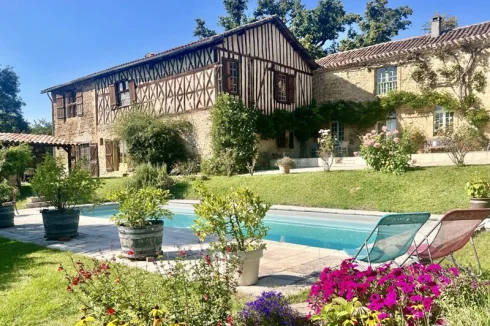Notaires and Translation Charges
Tuesday 07 August 2018
Notaires are obliged to offer translation support if required, but there are few rules that govern their approach or charges.
The legal process of property purchase in France requires that the formal conveyancing is undertaken by a notaire.
It is also frequently the case that signing of sale and purchase contract (compromis de vente), takes place through a notaire, a more neutral and transparent approach than through an estate agent, who will have been engaged by the seller.
Although some notaires are prepared to conduct the proceedings simultaneously in French and English, there is a general reluctance to do so, either for personal or professional reasons; they may consider their language competence not strong enough, or that their professional liability insurance only covers them where the French language is used.
The fact that any document drawn up by a notaire is a guarantee of its legality and authenticity may well also have a dissuasive effect.
That presents a dilemma for a notaires in international transactions, for they have a legal obligation to ensure that the parties have understood the terms of the contract and the final deed and a duty to provide advice to their clients.
Whilst the translation of a legal document may well be a relatively straightforward exercise, the provision of advice in a second language presents greater linguistic and legal challenges.
Some may not take that obligation strongly enough and proceed with the formalities in French, or a mix of broken English and French, relying on any rudimentary understanding by the parties to muddle through the process.
That can sometimes catch them out, and in a landmark legal case in 2014 a notaire was found guilty of negligence by not ensuring his Dutch client had properly understand what was going on.
Where notaires take their responsibility more seriously they will offer international buyers the facility of a local translator whom they bring to the proceedings.
However, the basis on which this occurs is not strongly regulated and the practices of some notaires leaves a lot to be desired.
In one case recently reported to us a notaire arranged for an English-speaking translator to be present at signing of the conveyance. No prior estimate was given of the charge, which at the end of the meeting the notaire advised would be €1,000. The translator was only present for an hour, and merely translated the words spoken by the notaire, with no translation of the paperwork itself. After the seller protested the charge, the notaire reduced it to €800, on condition that it was paid in cash, with no receipt provided.
Barbara Heslop, of Heslop & Platt Solicitors Limited, advises that the cost for the attendance of an interpreter at a signing meeting is usually around €200. The notaire should also provide a prior estimate of the charge.
We are aware of cases where the charge being proposed by the notaire has been substantially higher. In such a case, you need to contest the charge and/or obtain your own translator. Some notaires seem to consider that they are entitled to make a profit out of the use of a translator, so abuses do occur. You may find it useful to read Complaints Against Notaires.
This fee will be payable by the party for whose benefit it is arranged. If both seller and buyer are English-speaking, it is usually possible to share the interpreter’s fee.
You are also entitled to bring your own interpreter with you, who may be a friend or acquaintance. However, Barbara Heslop points out that "some notaires are particularly strict and may insist on a court approved interpreter/translator (un traducteur assermenté) whose fee will generally be higher )€300+) than that of an interpreter who is not court approved".
You can find a list of approved translators at Annuaire des traducteurs assermentés de France.
Whilst the use of translation assistance is important, buyers need to be careful about assuming that is all they need; it is as equally important to consider what is not in the contract than what it contains.
In addition, it is important to ensure you fully understand the sale and purchase agreement (compromis de vente) as the deed itself. The deed should merely be a reiteration of the contract, so ensuring the contract is satisfactory is fundamental.
Thank you for showing an interest in our News section.
Our News section is no longer being published although our catalogue of articles remains in place.
If you found our News useful, please have a look at France Insider, our subscription based News service with in-depth analysis, or our authoritative Guides to France.
If you require advice and assistance with the purchase of French property and moving to France, then take a look at the France Insider Property Clinic.





